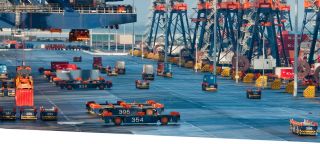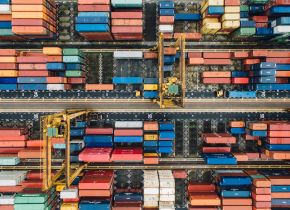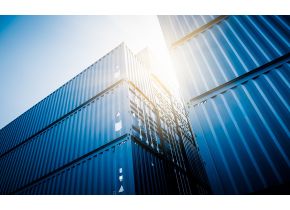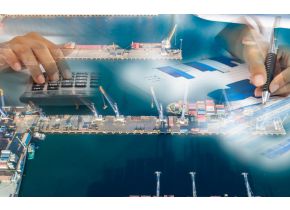Wilt u meer weten over de laatste ontwikkelingen op het gebied van Elektrisch Vervoer in India? Bent u benieuwd naar de zakelijke kansen op deze markt? Neem dan op vrijdag 14 oktober deel aan deze informatiebijeenkomst, onder leiding van de Consul-Generaal in Mumbai, Bart de Jong.
India heeft een omslagpunt bereikt in de transitie naar elektrische mobiliteit. De sector bereikt in 2026 naar verwachting een samengestelde jaarlijkse groei van 36%. Er zijn verschillende overheidsinitiatieven om de transitie verder te ondersteunen. Ook groeit het aantal productielocaties en de verbetert de laadinfrastructuur in het land. Meer achtergrondinformatie kunt u hieronder vinden (in het Engels).
Als één van de leidende spelers op het gebied van elektrische mobiliteit, biedt dit kansen voor samenwerking met Nederland en Nederlandse ondernemers. Tijdens de informatiebijeenkomst informeren we u in meer detail over de ontwikkelingen in de sector in India. Daarnaast bespreken we de mogelijkheden voor Nederlandse bedrijven en hoe de Nederlandse overheid u op deze markt kan ondersteunen.
Voor wie?
Deze bijeenkomst richt zich voor Nederlandse bedrijven (startups, SMEs & corporates) die actief zijn op het gebied van Elektrische Mobiliteit, en willen weten welke mogelijkheden de Indiase markt hen biedt.
Waarom meedoen?
Het Nederlandse economische netwerk in India heeft een studie laten uitvoeren naar de ontwikkelingen en kansen op het gebied van elektrisch vervoer. Deze worden met u besproken.
Wist u bijvoorbeeld dat:
• India de snelst groeiende grote economie ter wereld is, en er sprake is van snelle urbanisatie?
• India zich heeft verbonden om in 2070 een netto-nul uitstoot te hebben?
• De Indiase auto-industrie 49% bijdraagt aan het productie-GDP en 7% aan het totale GDP?
• 16 Indiase deelstaten beleid en stimuleringsmaatregelen hebben voor elektrische mobiliteit?
• 100% FDI is toegestaan in de sector via de automatische route?
Agenda
10:00u Welkom en introducties – Bart de Jong, Consul-Generaal in Mumbai
10:10u Presentatie van relevante ontwikkelingen in de sector en kansen voor het Nederlands bedrijfsleven, incl. Q&A
10:40u Ervaringen van Nederlandse bedrijven in India actief op het gebied van openbaar vervoer en laadinfrastructuur, incl. Q&A
11:10u Presentatie over het batterij-ecosysteem in India door IIT Madras
11:30u Interactieve discussie: wat betekenen deze ontwikkelingen voor u en hoe kan de Nederlandse overheid u ondersteunen op de markt?
12:00u Netwerklunch
12:30u Einde bijeenkomst
Deelname
Meld u aan voor de bijeenkomst door een email te sturen aan BDC [at] rvo [dot] nl. Vermeld daarin uw naam, bedrijfsnaam, KvK-nummer en contactgegevens. De uiterste aanmelddatum is 12 oktober. Deelname is gratis. De voertaal van de bijeenkomst is Engels.
Meer weten?
Heeft u nog vragen over deze bijeenkomst? Neem dan contact op met: Wies van Leeuwen, Business Development Coach India (Wies [dot] vanLeeuwen [at] rvo [dot] nl)
Organisatie
De Rijksdienst voor Ondernemend Nederland organiseert deze bijeenkomst in samenwerking met het Consulaat-Generaal in Mumbai.
Achtergrondinformatie (in het Engels) – Elektrisch Vervoer in India
Introduction
India is emerging as the fastest growing major economy and is expected to be one of the top three economic powers in the world over the next 10-15 years. This rapid economic development is intrinsically related to its increasing urbanization. The urban population is poised to grow to 600 million by 2031. Continued economic growth and increasing urbanization will put further pressure on transport systems. India’s vehicle ownership has been surging in tandem with its economic growth. A downside to the increase in private vehicles is a corresponding rise in carbon emissions, air pollution and traffic congestion.
India has committed to achieving net-zero emissions by 2070 at COP26 in November 2021 and aims at decarbonizing high Greenhouse Gas (GHG) intensive sectors such as transportation and energy. Globally, India ranked as fifth largest manufacturer of cars and seventh largest of commercial vehicles in 2019. It is expected that the size of the Indian automotive industry (including component manufacturing) will reach €250 billion by 2026. There is consensus that it is imperative to transition to greener transportation such as Electric Vehicles (EVs), Hydrogen-fueled vehicles, adoption of Non-motorized Transport (NMT) forms of mobility in its ambit of urban transportation.
E-mobility sector in India
India’s ambition to decarbonize transport is promoted through transitioning to clean mobility led by Electric vehicles. India Energy Storage Alliance (IESA) suggested India’s EV growth at CAGR 36% till 2026.
This is supported by various government initiatives such as the Faster Adoption and Manufacturing of (Hybrid &) Electric Vehicles (FAME) Phase I and II; the Production Linked Incentive (PLI) Scheme for the National Programme for Advanced Chemistry Cell (ACC) Battery Storage to boost indigenous battery manufacturing capacity and draft Battery Swapping Policy. The state governments also have complementary policies and incentives to promote EV adoption.
With 100% FDI possibility, the e-mobility sector has been on the surge with the development of new manufacturing hubs and improved charging infrastructure. Production-linked Incentives encourage domestic production of EVs, hydrogen fuel cell vehicles and a boost for localized ACC battery storage products are growth drivers for the Indian E-mobility sector.
Under the FAME-II scheme, approvals have been granted for 6,315 electrical buses, 2,877 EV charging stations (amounting to INR 5 billion (US$66.63 million) in 68 cities across 25 states/Union Territories and 1,576 charging stations (amounting to INR 1.08 billion (US$14.39 million) across nine expressways and 16 highways. Also, specific amendments to e-2wheeler (e2W) more affordable is noteworthy.
With such development, the sector has immense potential to generate substantial number of skilled and unskilled jobs. The Ministry of Skill Development and Entrepreneurship has estimated that the EV industry will create 10 million direct jobs and approx. 50 million indirect jobs by 2030.
RVO, Prinses Beatrixlaan 2, Den Haag









